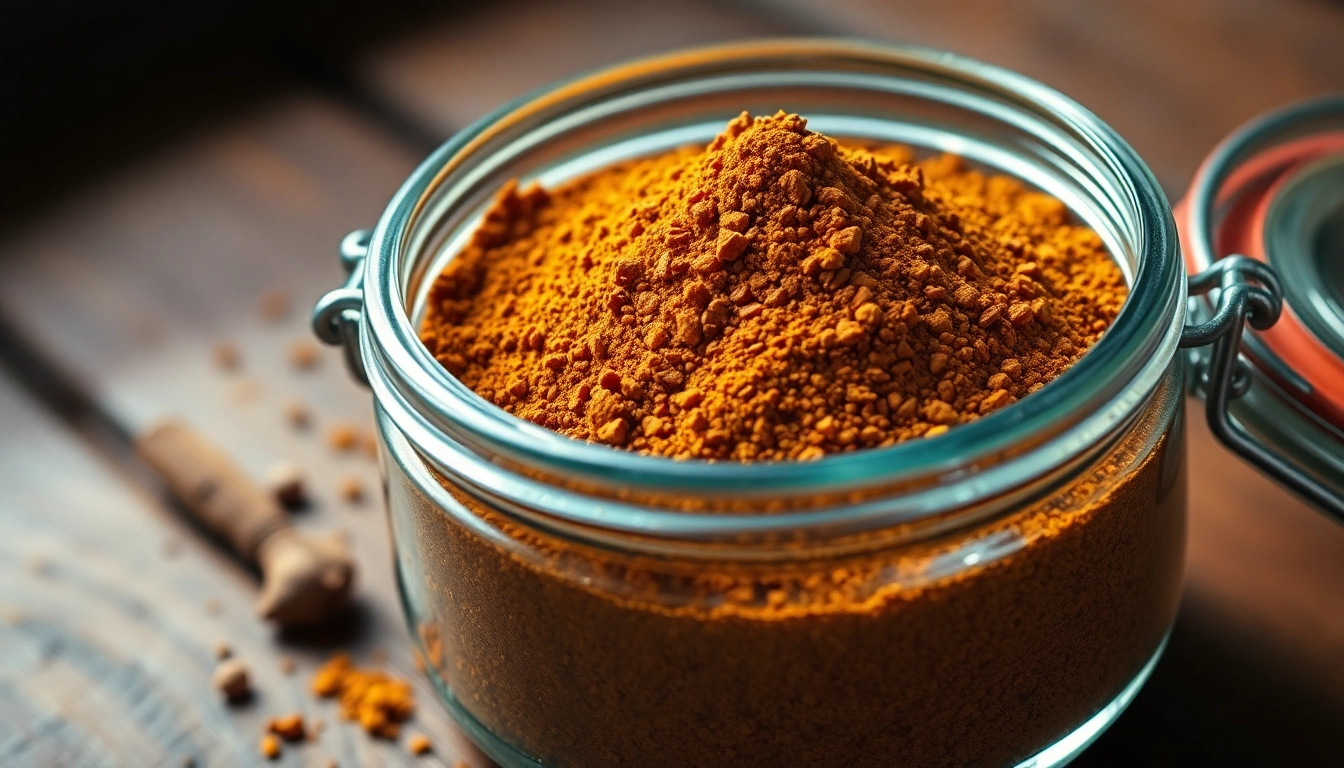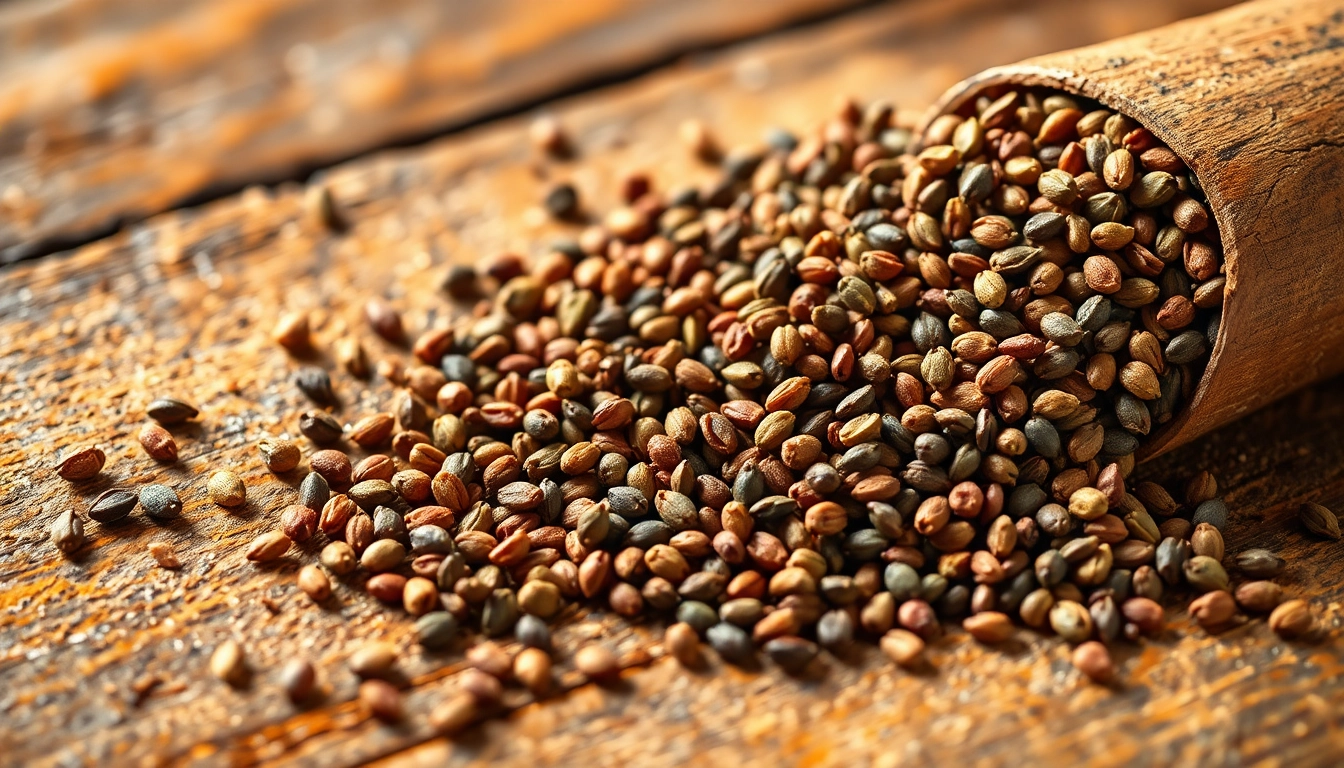Introduction
In the vibrant world of culinary arts and food processing, the quality and authenticity of spices play a pivotal role in defining the flavor, aroma, and overall appeal of dishes. Among these, Cumin Powder stands out as an indispensable ingredient, cherished across various cuisines for its warm, earthy aroma and versatile use. At Spice Nest, we pride ourselves on being a leading manufacturer and exporter of authentic, high-grade spices, including cumin powder, with certifications attained through participation in major food exhibitions worldwide. This comprehensive guide explores the nuances of cumin powder—from its origins and varieties to practical cooking tips and storage techniques—empowering culinary enthusiasts and professionals to select and utilize this product to its fullest potential.
Understanding Cumin Powder: Origin and Varieties
Global regions producing top-quality cumin powder
Cumin, scientifically known as Cuminum cyminum, has a long-standing history rooted in regions of Asia and North Africa. Countries like India, Iran, Syria, and Turkey are renowned for producing premium cumin seeds that are processed into cumin powder. India, in particular, leads the world in cumin cultivation, especially in regions like Rajasthan, Gujarat, and Punjab. These areas benefit from favorable climatic conditions that enhance seed quality, resulting in a rich, aromatic cumin powder favored globally. Our cumin powder at Spice Nest is carefully sourced from these top cultivation zones, ensuring superior aroma, flavor, and authenticity.
Differences between ground cumin and cumin seeds
While cumin seeds and cumin powder come from the same source, their culinary applications differ markedly. Whole cumin seeds retain their aroma and flavor longer and are ideal for dry roasting or used in pickling processes. Conversely, cumin powder offers convenience and a more uniform distribution of flavor in dishes like curries, stews, and marinades. Processing cumin seeds into powder involves meticulous grinding, ensuring the preservation of essential oils that impart characteristic aroma. At Spice Nest, our cumin powder undergoes stringent quality checks to maintain freshness, aroma, and purity, making it an essential ingredient for chefs and homemakers alike.
Key factors influencing cumin powder quality
Several factors impact the quality of cumin powder, including the seed’s origin, harvesting methods, processing techniques, and packaging. The use of high-quality, mature seeds with intact essential oils is crucial for a rich aroma. Proper drying and grinding at controlled temperatures prevent the loss of volatile compounds, maintaining the cumin’s natural fragrance. Packaging that safeguards against moisture, light, and air exposure is vital to preserve freshness over time. At Spice Nest, we adhere to international standards, employing advanced technologies and sustainable practices to produce cumin powder that surpasses industry benchmarks.
Benefits and Uses of Cumin Powder in Cooking
Enhancing flavor in traditional Indian dishes
Cumin powder is a cornerstone in Indian cuisine, used extensively in spice blends like garam masala and curry powders. Its warm and earthy notes enhance the depth of flavor in dals, biryanis, curries, and vegetable dishes. For instance, during tempering, cumin powder can be added to hot oil to release aromatic oils, creating a fragrant base for the dish. Its ability to meld other spices makes it versatile for both vegetarian and non-vegetarian recipes, elevating traditional flavors with authenticity and richness.
Health benefits and nutritional value
Beyond its culinary appeal, cumin powder offers numerous health benefits backed by scientific research. Rich in antioxidants, iron, magnesium, and dietary fiber, cumin supports digestion, boosts immunity, and aids in weight management. Compounds like thymol and cuminaldehyde exhibit anti-inflammatory and antimicrobial properties, contributing to overall wellness. Integrating cumin powder into daily meals can promote better digestion, enhance nutrient absorption, and support metabolic health, making it a natural superfood that aligns with wellness-conscious lifestyles.
Best recipes that highlight cumin powder’s aroma
Several dishes showcase the aromatic qualities of cumin powder. Classic examples include Indian favorites like chana masala, vegetable pulao, and tandoori marinated meats. For a simpler yet flavorful approach, sprinkle cumin powder over roasted vegetables or mix into homemade yogurt dips. Experimenting with cumin in global cuisines, such as Mexican chili con carne or Middle Eastern falafel, further illustrates its versatility. These recipes not only amplify flavor but also provide health benefits, making cumin powder an indispensable pantry staple.
Choosing the Right Cumin Powder for Your Kitchen
What to look for in packaging and labeling
When selecting cumin powder, premium packaging is fundamental. Opt for resealable pouches or airtight containers that prevent exposure to moisture and air, which can diminish aroma and freshness. Labels should clearly indicate the product’s origin, manufacturing date, expiry date, and certifications, such as organic or GMP standards. At Spice Nest, our cumin powder is packaged with utmost care, ensuring that customers receive a product that retains its quality and flavor over time.
Organic vs. non-organic cumin powder options
Choosing organic cumin powder assures that the product is cultivated without synthetic pesticides or fertilizers, aligning with health and environmental sustainability goals. Organic variants often retain higher essential oil content and aroma due to natural cultivation methods. While non-organic options might be more affordable, they may contain residual chemicals that could affect flavor or health. Spice Nest offers certified organic cumin powder, meeting stringent standards to provide consumers with a wholesome and authentic product.
Tips for selecting fresh and aromatic cumin powder
To ensure freshness, always check the manufacturing and expiry dates, and opt for darker, oily-looking powder, indicative of higher essential oil content. Smell the product; a strong, earthy aroma is a sign of quality. Avoid powders that emit a musty or stale odor. Additionally, purchasing from reputable suppliers like Spice Nest guarantees product authenticity and adherence to quality standards, ensuring your dishes are infused with natural, potent flavors.
Proper Storage and Handling of Cumin Powder
Optimal storage conditions for maintaining freshness
Proper storage is vital for preserving the aroma and flavor of cumin powder. Store in an airtight container away from direct sunlight, heat sources, and humidity. A cool, dry pantry shelf or cupboard is ideal. Using dry utensils for scooping and avoiding contamination can prevent mold and spoilage. Consistent storage conditions help maintain the product’s potency for up to a year or more.
Shelf life and signs of stale cumin powder
Cumin powder generally remains fresh for 6 to 12 months if stored correctly. Indicators of stale cumin include a faded or musty aroma, loss of flavor, and a dull appearance. If the powder smells off or has developed clumps, it’s time to replace it to ensure your dishes retain their authentic taste.
Complementary spices and storage tips for flavor preservation
To enhance flavor longevity, pair cumin with spices like coriander, turmeric, and black pepper, storing them separately but in similar conditions. Regularly checking spice containers and labeling with purchase dates can help manage freshness. Smaller, vacuum-sealed packages are preferable for long-term storage, especially for premium-quality cumin powder.
Integrating Cumin Powder into Your Culinary and Wellness Routine
Creative ways to incorporate cumin powder into daily meals
Cumin powder’s warm flavor complements a variety of dishes beyond traditional curries. Sprinkle it onto salads, roasted nuts, or popcorn to add a savory touch. Use it in homemade bread recipes, spice rubs for grilled meats, or integrate into smoothie bowls for an added zing. Its versatility allows you to experiment creatively while imparting health benefits.
Using cumin powder for natural health remedies
Cumin powder has been used in traditional medicine systems to aid digestion, alleviate bloating, and boost immunity. A simple remedy involves mixing cumin powder with warm water and honey for digestion support. Additionally, its antimicrobial properties can be harnessed in natural skin or hair care routines by creating herbal packs or masks. Always consult health professionals before adopting new herbal remedies.
Innovative recipes and cooking ideas with cumin powder
Modern culinary trends include infusing cumin into gluten-free dishes, plant-based recipes, and vegan spreads. Cumin-laced lentil or chickpea patties, spicy hummus, and fusion rice bowls are popular examples. Use cumin powder to season vegetable stir-fries or create spice blends tailored to specific cuisines like Middle Eastern, North African, or Mediterranean. Their rich aroma and health benefits make cumin powder a valuable ingredient for innovative cooking.

